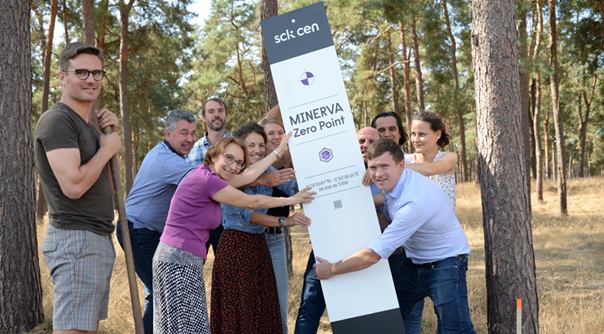
Belgium’s nuclear research centre, SCK CEN, has received formal approval from the Federal Agency for Nuclear Control (FANC) for construction of the Minerva installation, which is phase one of the Myrrha programme. In 2018 the Belgian government decided to build Myrrha (Multi-purpose hYbrid Research Reactor for High-tech Applications), a subcritical lead-bismuth cooled reactor driven by a particle accelerator. Myrrha will be the world’s first prototype of a high-power ADS research reactor.
The main building is a tunnel that will house the first part of the accelerator and will be 150 metres long, 7.5 metres wide with a height of 3.5 metres. Accelerator driven systems, of which Myrrha is the front runner, pave the way to new applications, according to Dr Hamid Aït Abderrahim, former Deputy Director General of SCK-CEN Deputy Director-General of SCK-CEN and Director of the Myrrha project. Myrrha will contribute to developing new radioisotopes for innovative cancer treatments and will help to develop technology to drastically reduce the volume and radiotoxicity of high-level radioactive waste through transmutation. The goal is to commission Minerva - phase 1 of the Myrrha project - in 2027 and to start with the development of innovative medical radioisotopes. SCK CEN submitted the licensing application at the end of 2021.
In preparation for the construction of Minerva, the company Geosonda is examining the building site and its existing cables. Pipes and temporary structures have been removed to make the underground safe for future work. The exact zero point has also been identified - this indicates the physical starting point of the installation, and also symbolises the transition from design to implementation phase. During the construction work, that zero point remains crucial, because the particle accelerator requires very precise alignment of all components. Preparations for the works are now continuing, as is a permit application to the Province of Antwerp that SCK CEN is planning in early 2023.
Following approval of the designs and prototypes, industrial partner RI Research Instruments has already produced and welded a first cavity, a 352 MHz niobium single spoke resonator. This marks the realisation of the first superconducting RF accelerator cavity for the Belgian Myrrha proton linac, SCK CEN said. The next step is to produce 59 similar cavities. These are then cooled with liquid helium to just 2°C above absolute zero. Together, all cavities boost the proton energy to 100 MeV.



